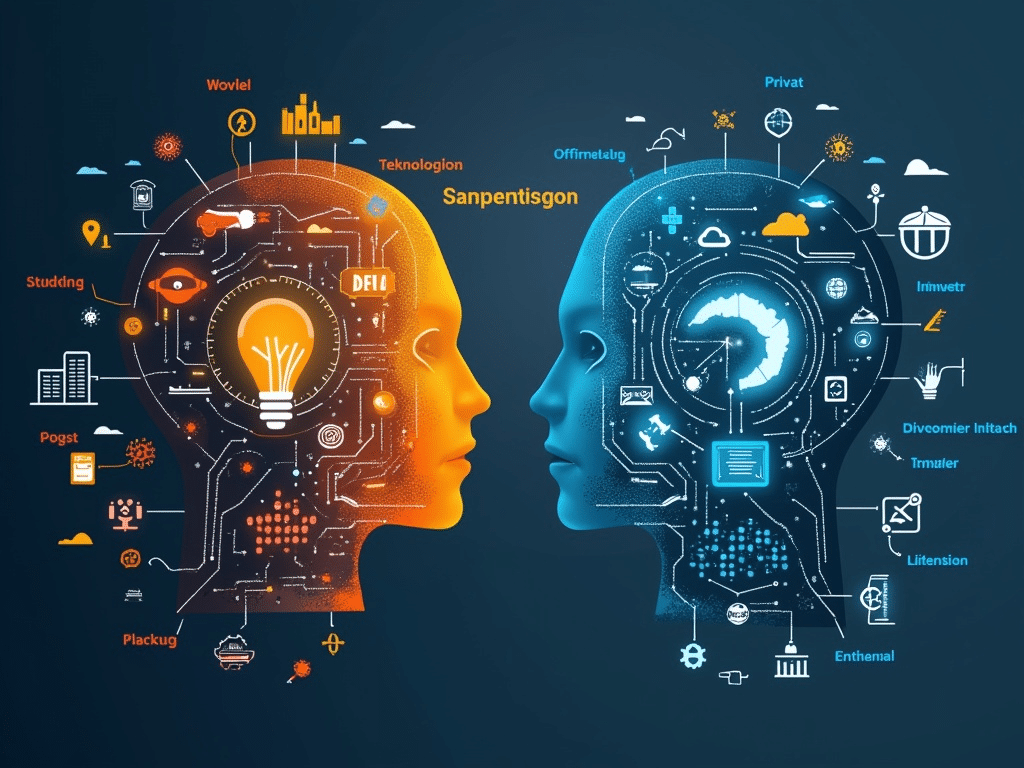Introduction
In a world where artificial intelligence (AI) and digital services are playing an increasingly important role, the policy decisions of major powers such as the US are becoming increasingly important for the global market. The recent AI policy under the leadership of Donald Trump has attracted international attention, not only because of the huge investments in AI infrastructure, but also because of the radical approach to regulation and security. This article looks at how Trump's initiatives may affect the use of ChatGPT and API access to OpenAI for us in Norway. In particular, we will look at issues related to security, stability and possible geopolitical outcomes.
Trump's New AI Initiative: An Overview
The Large Investment Grant
In January 2025, President Donald Trump announced an initiative known as the "Stargate", which set aside up to 500 billion dollars to strengthen the AI infrastructure in the US. This project includes collaboration with major players such as OpenAI, SoftBank and Oracle. The main goals of the initiative are:
- Construction of new data centers: The development of state-of-the-art data centers to support massive computing and AI applications.
- Increased labor force: The creation of over 100,000 jobs related to AI technology and infrastructure.
- Removal of regulatory barriers: Reduction of existing restrictions and regulations to accelerate AI development.
Direct and Indirect Consequences for Norway
Increased Competition and Technological Development
Although Trump's initiative is primarily aimed at the US market, there are several indirect consequences for Norway and the rest of the world:
- Faster Technological Progress: With the massive influx of capital, AI technologies can be developed faster, giving Norwegian companies and institutions access to more advanced tools and solutions.
- Increased innovation: Norwegian technology companies can experience increased competition, which can stimulate increased innovation and collaboration across national borders.
Security and Stability Challenges
At the same time as technological development is accelerating, there is a growing concern about security and stability:
- Reduction in Regulatory Control: In several cases, the Trump administration has chosen to remove or weaken AI regulations. This could result in services such as ChatGPT and OpenAI-API being implemented faster, but with potentially weaker security measures.
- Data security risks: Without strict security rules, vulnerabilities can arise in the systems, which can lead to an increased risk of hacking, data leakage and other security threats.
- Global Instability: Changes in AI regulation could lead to geopolitical tensions, especially if countries with stricter privacy laws find that US technology threatens their national security.

Possible Outcomes and Scenarios
1. Increased Innovation and Improved Technology
With the huge investments and a boost in AI research, we can expect:
- Improved ChatGPT features: Updates and new features for better user experiences, faster response times and more accurate answers.
- Extended API access: Norwegian developers can gain access to more advanced APIs, which can open up new applications and integrations in both the private and public sectors.
- Global Cooperation: Even as the US strengthens its position, increased global competition could lead to a strengthening of international data security and privacy standards, with Norway as a potential leader in this development.
2. Increased security risks and instability
On the other side of the coin, we can face challenges:
- Weaker Security measures: With reduced regulations, the implementation of AI services can happen faster, but without adequate security measures, increasing the risk of data breaches.
- Geopolitical Tensions: Trade restrictions and political tensions may arise if other countries react negatively to the US changes. This could affect Norway's access to US AI technology and lead to increased costs or delays in the implementation of new solutions.
- Impact on Privacy: Norwegian users may experience an increased risk of data breaches if data is processed without the necessary security barriers. This can have consequences for both private individuals and businesses, especially in sensitive sectors such as health and finance.
3. A Balanced Approach
It is also possible that a middle ground is developed, where:
- International Safety Standards are introduced: The US and other leading nations can work together to develop global standards that balance rapid innovation with necessary safeguards. This will benefit Norway as it can ensure a safer implementation of AI technology.
- Public-Private Partnership: Norwegian authorities can work more closely with private actors to develop national guidelines to ensure that AI technology is used in a safe and stable way.
- Technological Learning: This rapid development may also lead to the development of better tools for monitoring and securing AI systems, which could benefit the entire global AI industry.

Security and Stability: What Should Norwegian Actors Do?
Proactive measures
To meet the challenges that may result from changes in AI policy, there are several measures Norwegian players should consider:
- Implementation of Strict Security Measures: Norwegian businesses and government agencies should invest in robust security systems and continuous monitoring to protect against potential threats.
- Development of National Guidelines: It is essential that Norwegian authorities develop and implement guidelines that safeguard privacy and data security in line with technological developments.
- International Cooperation: By participating in international forums, Norway can help develop global standards and ensure that Norwegian interests are safeguarded in discussions on AI regulation.
Long-term Strategy for Stability
To ensure stable access to services such as ChatGPT and APIs from OpenAI, the following strategies may be relevant:
- Diversification of Suppliers: Norwegian operators should consider not being dependent on a single supplier for AI services. This can reduce the risk if political changes affect access.
- Investment in own infrastructure: By building a national infrastructure for AI, Norway can reduce its dependence on foreign data centers and services.
- Research and Development: Increased investment in our own AI research can help to develop technologies that are better adapted to Norwegian needs and security requirements.
Conclusion
Donald Trump's radical AI policy and the subsequent changes in US AI strategy could have significant consequences for the use of ChatGPT and OpenAI access in Norway. While the rapid pace of technological development can open up new opportunities and improved services, it also brings with it challenges related to security, stability and geopolitical tensions. Norwegian actors, both public and private, should be proactive in developing robust security strategies and participate in international collaborations to ensure that AI technology is used in a safe and stable manner.
It is important to monitor global developments and ensure that Norwegian interests are safeguarded at a time when AI is not only a technological, but also a political and security challenge.





